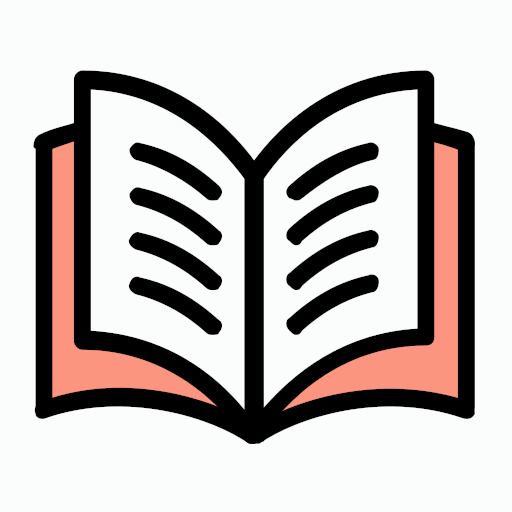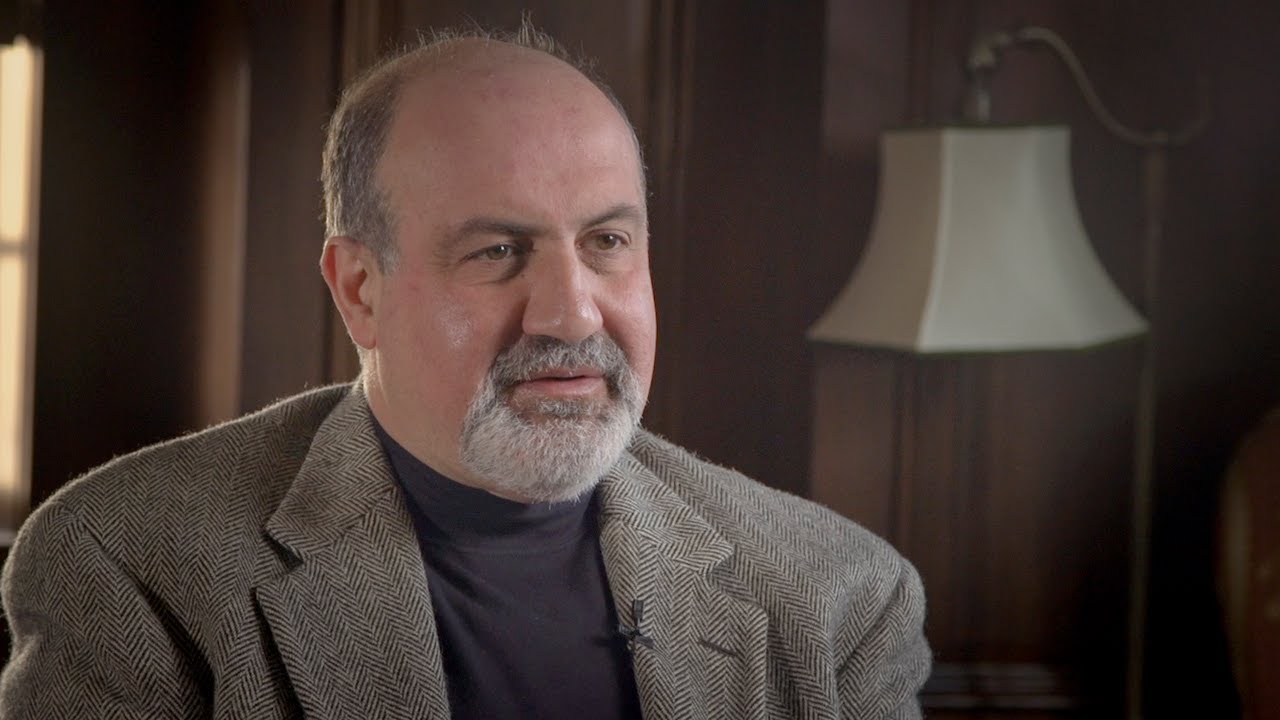Today, we are going to check out some of the best Nassim Taleb book recommendations.
Nassim Taleb is a mathematical statistician, option trader, risk analyst, and author of 5 books and numerous mathematical papers. His book, The Black Swan, is considered one of the most influential books of all time. He was one of the only people to correctly predict the 2008 financial crisis.
He loves to read and has an amazing reading habit. Nassim Taleb said that he has been reading 30-60 hours per week for years. In order to keep his reading habit, he said, “The minute I was bored with a book or a subject I moved to another one, instead of giving up on reading altogether. The trick is to be bored with a specific book, rather than with the act of reading.”
Nassim Taleb reads and recommends some extremely complicated books about complex subjects. These are mainly mathematical, deal with probability and statistics, or deal with the inner workings of technological innovations.
Nassim Taleb Book Recommendations List
While Nassim Taleb’s book recommendations aren’t for everyone, here is a full list of those books:
- Mathematics by A. D. Aleksandrov
- Zero to One by Peter Thiel
- The Science of Conjecture by James Franklin
- Seeking Wisdom by Peter Bevelin
- Deep Learning by Ian Goodfellow
- The Black Swan by Nassim Taleb
- Skin in the Game by Nassim Taleb
Mathematics by A. D. Aleksandrov

Mathematics: Its Content, Methods and Meaning was written by A. D. Aleksandrov, A. N. Kolmogorov, M. A. Lavrent’ev. The book was fully published in 1969, and contains 376 pages.
When Nassim Taleb recommended the book, he wrote, “There is something admirable about the school of the Russians: they are thinkers doing math, with remarkable clarity, minimal formalism, and total absence of unnecessary pedantry one finds in more modern texts (in the post Bourbaki era). This is of course surprising as one would have expected the exact opposite from the products of the communist era. Mathematicians should be using this book as a model for their own composition. You can read it and reread it. Professors should assign this in addition to modern texts, as readers can get intuitions, something alas absent from modern texts.”
This book will be interesting if you enjoy math, the history of how mathematical concepts came to be, and the development of math over time.
Mathematics features the ideas and work of 18 Russian mathematicians, and contains over 20 different mathematical concepts. The great thing about this book is that it explains the complex topics in both an elementary way and an advanced way.
It starts off with a basic explanation of mathematics, then delves into analytic geometry, algebra, and equations, then gets into topics like prime numbers, probability, approximations, and how computers have influenced mathematics. Finally, Mathematics ends with the details of linear algebra, geometry, topology, functional analysis, and other algebraic systems.
Zero to One by Peter Thiel

Zero to One: Notes on Startups, or How to Build the Future was written by Peter Thiel. The book was published in 2014. It is 224 pages, and was an instant number 1 New York Times Bestseller.
In an interview, Nassim Taleb once said about Zero to One, “When a risk taker writes a book, read it. In the case of Peter Thiel, read it twice. Or, to be safe, three times. This is a classic.”
In Zero to One, Peter Thiel believes that progress should not be limited to computers and that any industry, no matter what it is, can benefit from progress as long as the leader has one important quality – to be able to think for themselves.
Peter Thiel says that the next Bill Gates won’t be someone who invents the operating system, the next Steve Jobs won’t invent the iPhone, and the next Larry Page isn’t going to invent a search engine. What he’s getting at is that the next people who revolutionize the world aren’t going to be the ones who are doing what people already know how to do, but those who are doing something new.
These people aren’t competitors. They aren’t the ones trying to be the champion in the gladiatorial arena. They are those who have no competition because they are doing what no one else does. They are unique.
Zero to One will have you asking yourself questions that will lead you to the answers of how to find unique value in your business.
If you are interested, you can find some Peter Thiel book recommendations.
The Science of Conjecture by James Franklin

The Science of Conjecture: Evidence and Probability Before Pascal was written by James Franklin, published in 2001, and has about 497 pages.
When Nassim Taleb recommended the book, The Science of Conjecture, he said, “As a practitioner of probability, I’ve had to read many books on the subject. Most are linear combinations of other books and ideas rehashed without real understanding that the idea of probability harks back to the Greek pisteuo (credibility), and pithanon that led to probabile in Latin and pervaded classical thought. Almost all of these writers made the mistake to think that the ancients were not into probability. And most books such as “Against the Gods” are not even wrong about the notion of probability: odds on coin flips are a mere footnote. Same with current experiments with psychology…”
The Science of Conjecture is another mathematical book that takes a look at how mathematicians and scientists would make predictions before the modern ways of probability.
What methods did we use in all industries such as science, law, math, philosophy, economics, and other analytical and logical areas? James Franklin perfectly explains how judges and juries looked at evidence, how traders would determine insurance for their boats, and how scientists would come up with scientific theory.
The Science of Conjecture goes on to show the history of the methods that we would use to do the things that today we possibly take for granted.
Seeking Wisdom by Peter Bevelin

Seeking Wisdom: From Darwin To Munger was written by Peter Bevelin. This book was published in 2003, and has around 318 pages.
When recommending Seeking Wisdom, Nassim Taleb wrote, “A wonderful book on wisdom and decision-making written by a wise decision-maker. This is the kind of book you read first, then leave by your bedside and re-read a bit every day, so you can slowly soak up the wisdom. It is sort of Montaigne but applied to business, with a great investigation of the psychological dimension of decision-making. I like the book for many reasons –the main one is that it was written by a practitioner who knows what he wants, not by an academic. Enjoy it.”
Seeking Wisdom is Peter Bevelin’s way of teaching us how to attain and retain wisdom. He uses a great quote attributed to Confucius to make us think about wisdom: “A man who has committed a mistake and doesn’t correct it, is committing another mistake.”
Over the course of the book, Peter Bevelin introduces us to some of the smartest people in history who we can learn valuable wisdom from. These people include Charles Darwin, Charles Darwin, Publius Terentius, Mark Twain, Albert Einstein, Richard Feynman, Warren Buffett, and many more.
The great thing about the book is the people he looks to for wisdom are spread across a variety of topics, making this a great source for general knowledge and perfect for those readers who are eager to learn about just about anything.
Deep Learning by Ian Goodfellow

Deep Learning: Adaptive Computation and Machine Learning was written by Ian Goodfellow, Yoshua Bengio. It was published in 2016, and is quite lengthy at 800 pages long.
Nassim Taleb said, “Very clear exposition, does the math without getting lost in the details. Although many of the concepts of the introductory first 100 pages can be found elsewhere, they are presented with remarkable cut-to-the-chase clarity.”
Deep Learning is almost like a textbook for learning about machine learning and deep learning. This book is perfect for those who are interested in getting into artificial intelligence, whether you just want to know about the concepts or if you are looking to make it your future.
It starts off by teaching you what deep learning is, the basics of how artificial intelligence works, how a computer gets its knowledge, how the computer can take many simple concepts and turn them into something complex, and the hierarchy of how this all works.
The main bulk of Deep Learning goes over all the complex concepts that make the gears of artificial intelligence run. The topics include linear algebra, probability theory, information theory, numerical computation, and machine learning.
It also goes over the techniques that help a computer learn such as feedforward networks, regularization, optimization algorithms, convolutional networks, sequence modeling, and practical methodology.
The fun part of the book shows us how artificial intelligence affects different industries like natural language processing, speech recognition, computer vision, online recommendation systems, bioinformatics, and video games.
I’ll be honest, this book is extremely complicated, and it’s definitely not for casual reading on the beach, but will teach you what you need to know if you are interested in artificial intelligence.
The Black Swan by Nassim Taleb

The Black Swan is the 2nd book written by Nassim Taleb. He published the book in 2007, it had 400 pages, and it spent 36 weeks on the New York Times bestseller list.
The Black Swan is part of a series called Incerto, that contains five books by Nassim Taleb all about uncertainty.
Nassim Taleb calls a “black swan” an extremely improbable event that he says has three distinct characteristics. They are that it is unpredictable, that it has a massive impact, and that in hindsight could have been predictable. Some examples of black swans are Google and 9/11.
Nassim Taleb believes that people think that they know more than they really do. This is because humans only focus on what they already know, and not what they don’t know. Because of this, people overestimate the amount of knowledge they have and it hurts our opportunities to learn.
The Black Swan is the type of book that will change the way that you view and think about the world. It’s part math, part science, and part philosophy with amazing, unusual stories to tell.
Skin in the Game by Nassim Taleb

Skin in the Game: Hidden Asymmetries in Daily Life is the fifth book by Nassim Taleb and the last in the Incerto series about uncertainty. It was published in 2018, and has 304 pages.
In an interview about the book, Nassim Taleb once said, “The symmetry of skin in the game is a simple rule that’s necessary for fairness and justice, and the ultimate BS-buster. Never trust anyone who doesn’t have skin in the game. Without it, fools and crooks will benefit, and their mistakes will never come back to haunt them.”
The main concept in Skin in the Game is that if someone doesn’t have any sort of risk in something, then you should not fully trust them to make decisions.
This is mostly about investing. If someone doesn’t use their own money to invest in another company, then you should not be following their advice.
You will be introduced to concepts such as symmetry and risk sharing, ethical rules, minorities running the world, intellectual yet idiot, commitment, complicated solutions, and more.
The book doesn’t stop at investing. It goes on to show how having skin in the game can change any aspect of our lives.
Fun fact: This book was recommended by Naval Ravikant.

